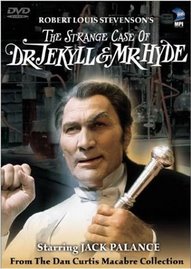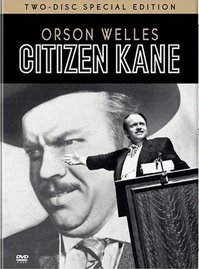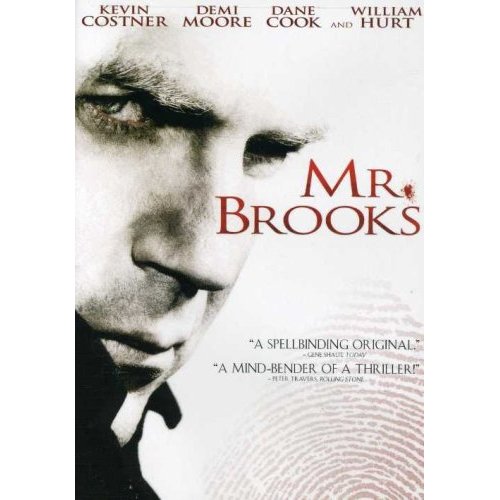Please pass this excellent "Career Advice for Desperate Job Seekers" From 97 Job Search Tips. Harry Joiner is a good guy to get to know about now, especially in this economy. My hats off to him for putting this together. To him goes all the credit.
Roswell, Georgia
Tuesday, 6:59pm EST
A Dear Friend …
… of mine spent 14 months looking for a new job. It was 2006. The economy was hot. He was a very competent ecommerce executive, and his resume was a showcase of great companies and meaningful experience. On paper, there was no reason the guy should have had trouble.
But he did. And at $180K per year in lost earnings, it was costing him a bundle to look for a job. Credit card debt began to mount up. He had to refinance his house and live on the equity, he chewed into his savings, and he began to fight with his wife – who couldn’t understand what the problem was.
So what happened? Why did it take so long for him to find his next job? Well, we’ll get into that. But the short answer is that he was great at doing his job, but he was lousy at marketing himself.
About this Document
Until very recently, the document you are about to pour over contained special “meta tags” that would prevent search engines like Google from spidering it. Once you read it, maybe you’ll know why.
Basically, I’m a marketing headhunter, and much of what’s presented here would be bad for my recruiting business if every reader took my advice. Most won’t. Yet because the job-seekers who have read this document found it so helpful, I have decided to publish it as a real, live book. This is the draft.
But the obvious question remains: If such a book were bad for my business, why would I write it?
Two reasons: Empathy and Efficiency. I created this webpage because many, many good people reach out to me for career advice. I love people, and I hold a special place in my heart for hard tryers, underdogs, dark horses, and odd ducks – having been one my entire life. What I know can help these people, and an easily updated, link-rich, step-by-step guide is the most efficient way to do it.
Let’s start with the obvious: If you are open to new career opportunities, then you already know that being in a dead-end white collar job sucks. And being an unemployed six-figure executive is worse. I have been in both situations this century, as a married father-of-four with a stay-at-home wife and a huge mortgage. Financially, things were pretty bleak. Even given what I know today, the recruiters I dealt with back then were effing useless. This Bud’s for them.
This webpage will explain everything I know about how you can get a better job – and how to find and manage the recruiters who might help you along the way. Wonderful recruiters are out there, if you know where to look.
“You are a star in a densely packed universe.”
Recently, I was asked to speak at a local church regarding how candidates can get better mileage out of recruiters. The place was packed. Evidently a lot of people hate recruiters and see them as lazy, commission-driven pickers of low hanging fruit. I can relate.
The reality is that being a recruiter is a little like being a triage nurse in an emergency room. Information technology has never made it easier to apply for a job, and the average recruiter gets several hundred resumes and phone calls for every search he conducts. Recruiters must make intelligent decisions about who gets seen – often in the blink of an eye. This applies to both corporate recruiters and third-party recruiters like me.
Many of the corporate recruiters who have become my friends routinely manage 20-30 open “job recs” at once. That’s about 3½ times the normal search load of a third-party recruiter. And corporate recruiters have no specialty either: A corporate recruiter could be managing a search for a logistics supervisor, a retail store manager, a director of online marketing, a paralegal, and two dozen other unrelated positions all at the same time. There’s simply no way they can appreciate how much of a badass you are in your function if you don’t make it VERY clear to them in your resume. For example, in my specialties of marketing and ecommerce, most corporate recruiters wouldn’t know a world-class Director of Online Marketing if it bit them. Not their fault.
For that’s why third-party recruiters exist. We get paid to know who’s got game – and we get paid to bring the best and brightest of that subset to the interview table. In a sense, we’re like sports agents.
But here’s where it gets ugly.
Last year I closed 17 searches. It was a banner year. Some of those searches were for VPs and Presidents, but most were for Managers and Directors. Yet of the 17 executives I placed, more than 3500 very fine candidates reached out to me. Think about that. I placed less than half of one percent of the people with whom I communicated. I was worthless >99% of the time. (For once, my wife agrees with me.) So as much as I would like to, there’s a pretty good chance that I’m not going to place you in a new job. I hate that, but that’s reality. Like I said, it’s one of the main reasons why I’m sharing these job search tips with you.
But the bad news doesn’t end there. Monster has 44 million resumes. CareerBuilder has 17 million. HotJobs has millions. Dice still more. LinkedIn has 13 million bios, and Facebook millions more. That’s just the tip of the iceberg. Specialized third-party recruiters have thousands of highly-qualified professionals in their house database. Plus whatever’s on the Worldwide Web. For recruiters, finding great candidates isn’t like finding a needle in a haystack. It’s more like finding a needle in a stack of needles.
As a job seeker, that’s what you are up against.
It gets even worse: Many (and some cynics say most) of these candidates have falsified their resumes to make themselves appear more accomplished than they are. Indeed, the old joke in the executive search business is that “You are only perfect twice in your life – at birth, and on your resume.” Through countless interviews and reference checks, recruiters are paid to separate the wheat from the chaff. And it’s not always easy to spot a fake.
Think of it this way: For any company, each open job requisition is a microcosm of the NCAA “March Madness” basketball tournament. As a candidate, your first task is to emerge from the thousands of unknown (blood-doping, steroid-taking) entrants to the Sweet 16 … then to the Great 8 … then to the Final 4 … and finally to the championship game.
This resource will focus on getting you to the Great 8.
Typically, face-to-face interviews don’t happen until you make it that far in the process. However, you have much more control than you think with regard to making it that far in an executive search – if you do the five things listed below. But first …
ü Hit Control-P to print this document. Hit Control-D to bookmark this page.
ü To download my contact information, double click here: http://getvcard.com/dogetvcard.asp?UID=n5u3c6R
ü Add this page to Del.icio.us
ü Submit to StumbleUpon
Ready? Let’s go!
1. Leave on your own terms.
Assuming you haven’t been laid off already, I hate to make this obvious point a stand-alone section. Surely you’ve heard this advice before. However, your mental health during your job search can be either your greatest asset – or your greatest liability.
Case in point: For about eight months during my first fulltime job after B-school, my boss was a terrible bully with a volcanic, hair-trigger temper. He had been a top producer in the company and was promoted to a divisional manager position because he could sell. The promotion didn’t mellow him. To the contrary, it seemed to make him worse. He would explode at least twice a day, and as one of his direct reports, I was a miserable wreck.
Every night I’d fantasize about giving this guy a piece of my mind and then storming out of his office, take-this-job-and-shove-it style. Several times I nearly did. But something inside me, a voice of reason, assured me that I’d need my boss as a reference – and I saw my career as a work in process. There was simply no way I was going to allow my boss to make me put an indelible flaw on my resume by quitting in a huff. Such flaws are like tattoos.
Besides, I knew that the easiest way to get a good job is to have a good job while you’re looking. So I hung in there and devised an escape plan. And that’s what you must do – even if you don’t hate your job but you know it’s a dead-ender.
These days I tell everyone who reaches out to me with a similar story to rent the Shawshank Redemption. Yes. Get a six-pack of your favorite beer and watch that sucker 2 or 3 times. Then DECIDE once and for all that you are going to leave your job on YOUR terms and no one else’s. Recruit the expectation that it could take you 6 or 8 months to find a new job. Just like Andy in Shawshank, you’ll need to be smart, planful, and above all – patient. You’ll be glad you did.
If you haven’t been fired but you know you are about to be, read this document before going further. And if you have a non-compete agreement with your current employer, it can make a big difference whether you quit or are fired. Look before you leap.
2. Sharply define the value that you create.
· Understand what you want to accomplish with your life and be able to explain convincingly how the job and the company to which you are applying will enable that ideal. Seriously. I have seen excellent candidates come out of interviews in a body bag because they could not answer the question “Why do you want to work at Company X?” Any good hiring manager will place high importance on your sincere desire for the job simply because your happiness is good for business. Happy employees are more productive, stick around longer, and work better with others. Moreover, tight-fitting candidates are also better arbiters of a company’s culture. So consider the 3 F’s: Fun, Future, and Finance. See http://www.marketingheadhunter.com/2006/04/career_advice.html.
· Specialize your skills. Now more than ever, it’s better to have a small circle of competence that’s sharply defined around the edges than one that’s big and fuzzy. Consider the humble hammer: When you need a hammer, you need a hammer. There is no substitute. Not a brick. Not the heel of a shoe. That’s a good position to be in, when everyone knows you for the job you do. So tie your personal brand to the value that you create for others – like the hammer, the podiatrist, the first baseman, or the Sarbanes-Oxley compliance accountant. Ideally, you want to be so good at your job that you could make a living freelancing if you had to.
· Productize your skills. [This new section is going to need some editing – but until I can smooth off the rough edges, I think the concepts are worth your time.] Back in the 1980s, I was a professional musician. My band played original music, and we traveled around in a smelly van, playing clubs for almost no money, sleeping on people’s floors, building a following and releasing our own CD’s. It was a blast, but there were some things about the music business that were hard for me to get my arms around. For example, I felt it was impossible for me to manage my music career objectively when I was, in fact, the product. You know the old saying “it’s hard to see the picture when you’re inside the frame.”
If only I had known then how relevant those self-developmental and self-promotional skills would be today, I might have appreciated my situation more. Your skills are your ONLY product. For most of us, they’re all we’ve got. Develop yourself into something for which there is clearly defined demand, and then promote the hell out of yourself. Like so.
Now then. It’s a whole lot easier to promote something when the rest of the world already knows what it is. My financial situation improved 10x when I bought MarketingHeadhunter.com because, all of a sudden, total strangers knew exactly what I do – which meant that they knew instantly whether or not they needed me. The “instantly” part is critical. Sure there is tons of competition in the recruiting space, but every business is competitive. Job 1 is getting noticed, and the best way to cut through the clutter is to make it dead-simple for people to know what it is you do.
Do people know what you do? If not, then you have a BIG problem.
Consider this list of the Top 100 Projects You Can Outsource. Look at all of these jobs that effectively exist as standalone, outsource-able tasks. Wouldn’t it be nice if your skillset were this easy to market? Remember that people will only pay for that which they cannot or will not do for themselves. You simply must productize your skills in a way that people can comprehend immediately.
BTW, this stuff about elevator pitches is BS. The best elevator pitches are “I’m a (insert title of job everyone knows) specializing in (name of niche).” For example, “I’m a travel agent specializing in Bavarian castle tours. Visit BavarianCastleTours.com.” What don’t you understand about that? That’s what you are shooting for.
Do not reinvent the wheel. Looking at the Top 100 article, the idea is to understand how other people who do what you do have productized their skills. What are their deliverables? What’s the going rate for their projects? How does a typical prospect know when they actually need one of these freelancers? How does the customer know when their problem has been solved? There needs to be a beginning, a middle, and an end to the customer’s sales cycle. Think about guy with a toothache. He hurts, he Googles “(local area) dentist,” he goes to the dentist, he gets treated, and he pays his bill when it’s over. Regardless of what your service is, that’s what you’re trying to replicate.
· Develop a Teachable Point of View in Your Area of Specialization. Being good at your work is one thing. Giving your colleagues the best “how” and “why” to make use of your work is another. You simply must be able to show people what’s in it for them if they help you get things done – even if their paycheck is not tied to your success. Motivation and education go hand-in-hand.
If you don’t appreciate how important this is, simply ask your mentor to describe the best boss they ever had. Chances are your mentor will say something like “I learned more from so-and-so than anyone …”
Later, ask yourself the question I ask every candidate: “What if tomorrow you were forced to make a living as a professional business trainer? In what field would you specialize – and why? Be specific. [Wait for complete response before asking]: How would that expertise help you succeed in the job for which you are applying?” Roughly 70% of the time, there is a major disconnect between what the candidate knows well enough to train and its relationship to the job for which they are applying. For leadership positions especially, this is a serious problem.
If you want to get ahead in your career, you are going to have to learn to lead. And that means learning to teach those people who report to you. This is just a natural part of building bench strength. See http://www.marketingheadhunter.com/2005/12/business_school.html
· See the Big Picture. With the mindset of a specialist, visit http://www.reliablegrowth.com/swot.pdf for a form that will help you understand how you might impact your current company’s overall competitive position. Innocently ask your boss to fill this out too – just to make sure that your views on the business are in alignment with hers and that you are doing the right things (as opposed to merely doing things right). Don’t forget, your current boss is your most important future job reference.
After you fill out the form, ask yourself: “Would my resume demonstrate to a recruiter that I can help a client address its strengths, weaknesses, opportunities, and threats?” At the very least, you should appear have some sensitivity to strategic issues.
· Understand how your current job touches multiple company functions. You will never get to first base with a recruiter if he doesn’t think that his search fee will be lost in the rounding of the value that you will create for his clients. Although they’re specialists, “A-players” think holistically about their employer’s business, and they know how their work drives the three shareholder value levers of …
ü Revenue growth (customer acquisition, customer reactivation, increasing customer purchase frequency, cross-selling, and up-selling),
ü Operational efficiency (running a clean operation that fulfills the company’s brand promise right the first time), and …
ü Capital optimization (running a cash-efficient, low-overhead operation with the right blend of debt and equity).
A-players make significant and quantifiable contributions to revenue growth and operational efficiency, and they are responsible stewards of company resources. Moreover, A-players facilitate collaboration with clients, outside partners, and coworkers. Note the duality: “A-players” are narrow specialists – yet they are versatile team players and self-sacrificing people builders. Got it? That’s narrow yet versatile.
· Understand how your current job drives company profitability – and quantify your contributions to growth and efficiency in multiple functional areas. Recruiters know that the best predictor of future performance is a successful track record.
· Financial literacy isn’t just for financial types. If you are a marketer, you don’t have to be a financial genius, but you should consider how your job (and the job for which you are applying) will impact your company’s financial picture, and be able to discuss it intelligently. Click here for a good review.
· Be able to quantify how you have built and led successful teams. Servant leadership gets more important every year as companies seek to accomplish more with less. How many people report to you now? Under your stewardship, how have your direct reports grown both personally and professionally? Ask them, and be prepared to use them as references. Obviously, note this on your resume. And if you’re not sure you understand what “servant leadership” really is, please click here.
· Be able to discuss any processes you have developed and implemented to make your job, your department, and your company run more smoothly. Benjamin Graham, the father of value investing, famously instructed his MBA students to “Buy any business that’s so good that an idiot can run it, because sooner or later one will.” Mr. Graham’s point was that whether your company sells a product (like McDonald’s) or a service (like H&R Block), the world’s most profitable companies are built on processes. And the best processes are simple, resourceful, reliable, scalable, well-documented, and teachable to anyone. If they are proprietary, so much the better. The best candidates know this stuff and have devised ways to routinize every function in their bailiwick. Have you?
· Know something about project management – and be able to discuss any projects you have led, managed, or participated in. This point combines elements of the last two points given that projects are all about managing people and process to successfully accomplish a given objective on time, under budget, and within the specified scope. See http://www.michaelgreer.com/handouts-pm-any.htm
· Distill your career into two minute “chapters.” Last year I was blessed to work with REI.com on a couple of VP-level searches. Their VP of Human Resources is one of the savviest people I’ve ever known. Several days before my winning candidate’s final interviews, she instructed me to coach the candidate to divide his career into several two-minute career chapters, each with a beginning, a middle, and an end. Each chapter story should segue neatly into the next chapter, and each chapter should lend itself to a stand-alone line of interview questions, such as “What was your biggest failure at ___, what did you learn from that failure, and how did you apply those lessons in the future?”
Make your life sound interesting. Most interviewers have short attention spans, and many are often preoccupied with what they are going to ask you when you finish answering their current question.
· Check your references in advance. Especially if you are a VP-level candidate, you can expect the company to which you have applied to check your references very carefully. Do you know what a former boss / company will say about you? Many candidates have a shaky reference that kills a new job offer. Find out now what your former Boss / Company will tell a new employer about you. See https://www.allisontaylor.com/reference_check_order.asp
· BUILD your online reputation. This one is huge. Recently I read an article in the WSJ about how parents are naming their kids unusual things so that their kids can be found on Google. That’s not a totally whacked idea. As a recruiter, much of my job entails mining vast amount of online information about candidates, trying to discern their titles, areas of expertise, unvarnished (!!) accomplishments, and professional networks.
To succeed beyond 2010, you will need to “look good on the internet.” Believe it or not – this will involve personal branding. To see where your personal brand stands, take this test from personal branding expert, William Arruda: http://www.careerdistinction.com/onlineid/. Then consider the points here: http://www.stuntdubl.com/2007/07/11/reputation-management/.
· MONITOR your online reputation. A 2006 survey by executive search firm ExecuNet reports that 77% of recruiters said they use search engines to check out job candidates. In a CareerBuilder.com survey of 1,150 hiring managers, one in four said they use Internet search engines to research potential employees. One in 10 said they also use social networking sites to screen candidates. These numbers are growing every day.
Bottom line: You’re gonna get “Googled” by the recruiters and hiring managers before any offer is extended. See http://www.marketingpilgrim.com/online-reputation-monitoring-beginners-guide.pdf. Also be sure to read Andy Beal’s new book, Radically Transparent: Monitoring and Managing Reputations Online. Andy’s the expert on this subject – and his material is presented in a clear, simple, and comprehensive way.
3. Have a “keyword – rich” and “metrics – rich” resume.
· “Sales is real. Marketing is bullshit.” So says Doc Searls, and I agree. If you are a marketer, your job is to sell more stuff to more people for more money more often. That’s it. So be able to quantify on your resume how you did this. Rosser Reeves used to say the only thing that matters in advertising is “By how much did your campaign move the damn sales needle.” Therefore, you must …
· Have a hard-hitting “metrics rich” bullet-pointed resume. The law of specificity applies. Odd numbers work best. Your resume must highlight verifiable, concrete accomplishments such as …
- “Increased sales in XYZ category by $47,215 in Q2 2006”
- “Decreased distribution costs by $17.61/case by renegotiating truck leases.”
- Sell what matters: Read the year-end issues of your industry’s trade publications to see which benchmarks help companies make the annual Top Ten lists. Keep yourself relevant by highlighting your impact on the most relevant metrics.
· Call yourself what everyone else in the world calls you. Don’t make the reader think. He won’t. Why be a “Fire Extinguishment Engineer” when you can be a Fireman? Sell yourself in the language in which the customer buys. See Monster.com for comparable career titles and responsibilities. Or ask your recruiter to send you some anonymized resumes of comparable candidates in your field. Often she will. After all, your success is literally her success.
· Use relevant keywords in your resume. What are the terms that are specific to your job? In your resume, use them as many times as possible. This is called keyword density, and it matters. See http://tools.seobook.com/general/keyword/ to see how the world searches for people in your field. For example, the term “recruiter” is searched for in Google 12 times more often than “headhunter.” Go figure. Naturally, my resume refers to me as a “recruiter.” Don’t argue with the market. You’ll lose.
If you are curious about which of only two terms gets more traffic (such as “Stewardess” vs. “Flight Attendant”), check out the Google Smackdown tool at http://www.onfocus.com/googlesmack/down.asp. And another thing: Sometimes the same job is called different things in different regions – kinda like http://www.popvssoda.com/. So do your homework and market yourself in the local lingo.
· Research the position and the client and make your value OBVIOUS. Using the right keywords is only half the battle. Putting them in the right context on your resume is the other. Find out what’s important to the client and then map your resume to the job. Ideally, you would rewrite your resume to fit hand-in-glove with each job description. Seriously. For decades, old-school direct mail copywriters have called this “tightening the message-to-market match” – and it works wonders. That’s why headlines like “Attention Headache Sufferers!” don’t pull nearly as well as “Attention Young Mothers with Migraines!” Again, when trying to get to the Great 8, you are dealing less with people and more with document matching technology. Your goal is to keep from getting disqualified for “lack of experience.”
· Use testimonials. We live in an age of skepticism. When you list your accomplishments, why should your reader believe you? Use testimonials to highlight your successes. See “How to Leverage LinkedIn” at http://www.marketingheadhunter.com/2006/09/how_to_leverage.html
· See the world through the recruiter’s eyes. To see what I see when I view a resume, open your resume in “HTML” format in any web browser. Now, using the Google Toolbar, enter the keywords for which you want to be found into the search box and press the toolbar’s highlight button. Does your resume light up like a Christmas tree? If not, then you need more keyword density.
· Put yourself in the recruiter’s shoes. Okay, so I’m mixing my metaphors with the eyes and shoes bit, but you get the idea. The best short standalone document I have seen on what it is recruiters want to know when they speak with you is right here: http://www.fordyceletter.com/2004/08/01/14-candidate-questions/. Now, maybe legally they cannot ask you all of these thing point blank – but not too far in the back of their minds, this is what they want to know.
· Subscribe to job-specific emails from job aggregators like Indeed.com and SimplyHired. Then apply to ALL relevant jobs, even if they’re in California. The goal is to create a trial dialogue with any and every company to get feedback on your resume. Think of this as market research. During each phone screen, ask “What specifically is it about my resume that made you contact me?” Listen & Learn.
· For interview preparation, use www.FirstResearch.com to learn about the client’s industry. For research on hiring managers, www.Copernic.com and www.ZoomInfo.com are wise investments. The money you spend on research will come back to you twenty-fold. I kid you not.
· Research your hiring manager – and any members of the team with whom you will be interviewing. Naturally, you’ll want to visit LinkedIn to get their bios. Try Facebook and Jigsaw too. And if you want to go the extra mile, try running a search for them in Google News Archives – a tool that serves up news results going back 100 years, depending on the news source.
4. Be easy to inhale into the recruiter’s database.
· Do NOT layout your resume in a fancy format in Adobe. By all means, have a really slick resume that you can email directly to the hiring manager when you get to the Great 8. But until that point, your resume is not the best place to showcase creativity. Remember, your objective is to get the recruiter to “inhale” your resume into his database, and his database won’t work with Adobe. >Delete< · NEVER put your contact information in the header of your resume. His software can’t get to it there. Put your name, address, phone number, and email address in the resume’s body, like this … Mary Jones 24 Redwing Road Hockeytown, MI 30345 Phone: (425) 555-1212 Email: Mary.Jones@EmailAddress.com
5. How to be FOUND by a recruiter – or anyone, for that matter.
· Post your resume on the worldwide web. Get a friend to post your resume on her website, or pay a local hosting company a few bucks to post it on theirs. Give your document a name like “boston_cobol_programmer” or whatever it is you do. Submit the page to Google at http://www.google.com/addurl/. This is E-Z to do. Then …
· Use SimplyHired's Resume Post Pro to post your resume to 80+ different job boards. Hey, it’s a start. For just $29.95, you'll hit all the major boards like HotJobs and CareerBuilder, as well as many excellent niche boards. See http://www.simplyhired.com/resumepost. You might also try http://www.resumerabbit.com. And remember the words of Wayne Gretzky, “100% of the shots you don’t take don’t go in.” According to recruiting industry guru, Peter Weddle, there are 40,000 job boards – one just right for you. Maximize your coverage.
· Join TheLadders.com. TheLadders is a job board for positions paying >$100K per year. Unlike traditional job boards, TheLadders is member-funded, meaning that candidates pay $30/month to belong, and qualified job postings are free for employers and recruiters. As a recruiter I like this model, not because the postings are free -- but because the candidates are serious enough about their careers to pay a monthly fee to view legitimate six-figure jobs. Moreover, many of my friends have had great experiences with TheLadders, which offers a huge database of high-end jobs. A must.
· “Sell right into the objection.” There’s an old story told by sales trainer Tom Hopkins about a novice home builder who built a spec house next to a railroad track. For months, no one would buy the vacant house. Then the builder found a clever real estate agent who decided to show the house only at 11:35am and 3:15pm on Mondays, Thursday, and Fridays because that’s when the train rolled by.
The agent raised the price of the house by several thousand dollars, and then bought an expensive widescreen TV and turned it on while showing the house. The TV was a giveaway to anyone who bought the house – and at normal volume, the sound of the TV drowned out the train. The house was sold in the first week. The agent never acted like the train was a non-issue to buyers. Indeed, she acknowledged it as a valid concern, and then put the concern in the proper perspective: “It can be heard, yes – but it’s no louder than a normal TV.” Simply put, she sold right into the objection.
And that’s what you must do. If you are GLBT, over 50, a working mom, have been out of work for 22 months, have been in business for yourself, or whatever, then you will be happier if you simply “sell right into that potential objection.” In the words of Joe Cossman (the inventor of the ant farm): “If you can’t change it, promote it.”
Look, we all know there are biases in the hiring process. If there weren’t, diversity recruiters wouldn’t exist. So use the tool at http://www.simplyhired.com/specialsearches.php to search for jobs with companies that can deal with who you are. Which leads me to my next tip …
· Join Facebook. Facebook is an evolving recruiting medium, but you can see here that I think it’s going to be VERY disruptive for guys like me. Disruptive for me means GOOD for you. In the very near future, social networking applications like Facebook will allow candidates to join the passive candidate networks of target companies. So you’ll be able to pick dozens of companies that you might like to work for and when they have a need, they’ll be able to reach out to you. That’s the theory, anyway.
Facebook profiles are rich in candidate information (such as your political affiliation, religious orientation, network of friends, marital status, physical appearance, etc.) that might be a turn off to potential employers. Is this a violation of EEOC rules? Maybe. Can you hide these features? Sure. But either way, if you voluntarily put pictures of your scruffy, pierced, tattooed, cigarette-smoking mug on Facebook, then don’t be surprised if those attributes seep in to the company’s subconscious during the selection process. If you are going to participate in photo-rich online communities, then you will need to meticulously care about your personal brand image.
Before you join Facebook, watch this: http://www.conversationagent.com/2007/12/do-you-have-a-f.html. Then if you decide to market yourself on Facebook, check out http://www.insidefacebook.com/2007/12/09/inside-facebook-marketing-bible-24-ways-to-market-your-brand-company-product-or-service-in-facebook/. Also check out 12 Ways to Use Facebook Professionally. Remember, you are a company. You are your own product.
UPDATE: Recently I got banned from Facebook – forever without appeal. (After a giant flap in the blogoshere, I have since been re-admitted.) The charge was a first-time violation for spamming my own email address book. Now, you can debate all day long whether or not I’m guilty of spamming. That’s not the point. Here’s the takeaway: First-time violation. No appeal. Banned forever. If I were jobseeker, there is absolutely no way that I would limit my online presence to just one community. You must diversify between Facebook, LinkedIn, and several other online social networks. You are asking for trouble if you put all of your eggs in one basket. It could happen to you.
· Use LinkedIn, ZoomInfo, and JigSaw. Recruiters love passive candidates, and these are some of our favorite fishing holes. These sites allow job seekers to get found by recruiters without “openly” looking for a job. LinkedIn is especially powerful for finding people (as well as being found by recruiters), so bookmark Marc Freedman’s http://linkedin.pbwiki.com/. To build your LinkedIn network, find a several “super connectors” like Marc to add on Day One. Checkout http://www.toplinked.com/ to see who these people are and send them a request to connect. Even if they don’t know you, they’ll usually do it. See also http://www.marketingheadhunter.com/2006/08/marketing_jobs.html. Finally, check out Expanding Your LinkedIn Network by professional recruiting researcher Simon Meth. No matter what, make sure that your profile is complete, regularly updated, and reflects your current job duties. You should also participate in LinkedIn answers to improve your credibility and visibility. My brother swears by this strategy. For Mashable’s Top 10 LinkedIn tools, click here. Awesome.
· Forget the cover letter. Recruiters don’t usually read them. A short, keyword-rich email will suffice.
· Use powerful headlines on Monster. Being a recruiter is like being a triage nurse in an emergency room. Often, he must make very quick decisions about who gets treated. Scary. Change your headline to tell the recruiter in a BLINK what he needs to know: Function / Company / Salary / Relocation preference. See http://www.marketingheadhunter.com/2006/07/getting_found_o.html
· Buy “YourName.com” and “YourJob.com” at GoDaddy or BuyDomains.com. Soon everyone will do this, just like this fellow: http://www.tomwinterstein.com/. Better yet, post your resume on a keyword-rich webpage parked on a keyword-rich domain, like www.BostonCobolProgrammer.com. Or even better, buy a handful of domains and point them to your primary domain. For example, if you would consider relocating to Denver, Seattle, and Atlanta, buy www.DenverCobolProgrammer.com, www.SeattleCobolProgrammer.com, and www.AtlantaCobolProgrammer.com and redirect them to www.BostonCobolProgrammer.com. Call your website something generic like “Freelance Cobol Programmer” and use GoDaddy’s URL “masking” feature to hide evidence of a redirect. This way, anyone who types in AtlantaCobolProgrammer.com will think you are local to Atlanta. Mwahahaha. http://www.DomainsBot.com is perfect for seeing which domains are still available in your functional area of specialization. http://www.NameBoy.com is really great, too.
· Start a weblog. If you have a teachable point of view in your area of specialization, then blogging will be easy. If you don’t have a teachable point of view, then blogging will help you get one. See http://www.pronetadvertising.com/articles/my-50-favorite-blogging-resources.html and http://www.chrisbrogan.com/basic-business-blogging-suggestions/. Link to other bloggers in your field, and add a link to your weblog in all outgoing emails. You can start your own “house-file” of email addresses by using an auto-responder to automatically send your blog link and contact information to anyone who reaches out to you. I do this, and as of this writing 14,696 people have downloaded my vCard. See http://www.GetvCard.com. Be sure to include your private home number and home email address so people can find you if you change jobs. And of course, learn to optimize your weblog copy for search engines. Gradually, you’ll build your own brand.
This is laughably simple to do. I bought MarketingHeadhunter.com in 2005, and in 2006 I acquired ManagementRecruiter.com, EcommerceRecruiter.com, EcommerceConsulting.com and SearchEngineExperts.com. Great domains can be had for a price and they are well worth it. Life is good when any qualified buyer can find you. And on a related note …
· Learn a little SEO. Please. You don’t have to be an SEO jock, but if you learn some of the basics, your fortunes can change dramatically. See http://www.webconfs.com/15-minute-seo.php. See also http://www.marketleap.com/help/seo101/default.htm. And to download a lethal weapon for SEO, check out http://tools.seobook.com/firefox/seo-for-firefox.html
· Don’t forget Google Adwords. Once you have posted your resume online, use pay-per-click search marketing techniques to get your resume into the hands of industry peers. Would you like to have your resume seen by Bill Gates? Buy the keywords [Bill Gates] and wait for Mr. Gates to “Google” himself. See http://www.marketingheadhunter.com/2006/10/ppc_advertising.html
· A final note on video resumes: As a concept, these have always made sense to me. But I never saw a video resume that I liked until Elena Anguelova sent me hers several months ago. I thought it was brilliant. So simple, so inexpensive, yet so effective. See for yourself: http://www.elenaanguelova.com/. Some experts wonder whether video resumes are here to stay. I for one think they will have relevance mostly in the later stages of a search. However, note that CareerBuilder is beginning to allow video posting capability on its site. Anything can happen. See http://www.ere.net/inside-recruiting/news/careerbuilders-test-of-video-resumes-is-181045.asp. For a nifty idea on using video with LinkedIn, see http://www.marketingheadhunter.com/2008/05/susan-mckenna.html
6. How to FIND the right recruiter
· Using search engines, enter strings like [“executive search firm” + “your industry” + “your city”]
· Contact your trade association for the names of recruiters in good standing. Directories of trade associations are at http://www.weddles.com/associations/index.cfm and http://www.asaecenter.org/Directories/AssociationSearch.cfm
· See LinkedIn.com, which carries roughly 90,000 recruiter profiles. To find recruiters’ profiles, click on the main search feature. Enter your industry in the search field marked “Keywords” – and then choose “Staffing and Recruiting” from the dropdown menu called “Industry.” Depending on your keywords, hundreds of my competitors will pop up. Many will list their email addresses in their profiles.
· Ask your friends. “None of us is as smart as all of us.” – Seth Godin
· Keep a list! “When you need a friend – it’s too late to make one.” – Mark Twain
· Go to trade shows. “Get out of the office.” – Tom Hopkins
For more information, check out these resources …
RiseSmart’s List of the Top 100 Career Blogs – I couldn’t believe this when I saw it. A veritable cornucopia of world-class career advice and job search tips. How convenient! See http://www.risesmart.com/risesmart/blog/career100/
How to Prepare for a Job Interview – It doesn’t get any better than this. http://www.marketingheadhunter.com/2007/03/online_retail.html
“Why did you leave your last job?” – You WILL get asked this question. Here’s how to answer it. http://www.marketingheadhunter.com/2007/03/why_did_you_lea.html
Humility: The Core of Servant Leadership – What is a servant leader, and how can you become one? http://www.marketingheadhunter.com/2007/01/humility.html
Warren Buffett on "Which Candidate Has the Potential?" – It’s the one who’s Investment Grade. http://www.marketingheadhunter.com/2006/05/interview_tips.html
Top 5 Candidate Traits – Humility, business orientation, and a whole lot more. http://www.marketingheadhunter.com/2006/03/candidate_trait.html
How to Hire a Problem Solver – Are you a problem solver? See Harry’s popular article from Optimize. http://www.optimizemag.com/article/showArticle.jhtml?printableArticle=true&articleId=55801211
How to Land a Six Figure Job – Learn what’s keeping the client awake at night, and then define your agenda. http://www.marketingheadhunter.com/2006/01/six_figure_jobs.html
Negotiating a Higher Salary – You do not have to tell the company how much you make. http://www.marketingheadhunter.com/2006/02/negotiating.html
Getting Paid What You're Worth – Negotiate for more responsibility, not more money. http://www.marketingheadhunter.com/2006/03/compensation.html
Introducing the "Gray Ceiling" http://www.marketingheadhunter.com/2006/08/career_advice.html
Job Search Tip on Emailing Hiring Managers http://www.marketingheadhunter.com/2006/08/job_search_tip.html
The Perfect Reference Letter – A wonderful resource that applies to getting a better job. http://www.marketingheadhunter.com/2006/08/reference_lette.html
"How Can a Candidate Cut Through the Noise?" – Yahoo’s HR VP bears her secrets. http://www.marketingheadhunter.com/2006/08/guy_kawasaki.html
To download my contact information for future reference, double-click here: http://getvcard.com/dogetvcard.asp?UID=n5u3c6R
A final bit of advice.
If you made it to the end of this resource, congratulations. I hope you print it out and highlight it to death.
Now, if you are a monotheist (particularly a Muslim, Jew, or Christian), I’m going to give you the most powerful, life-altering tip of all: Pray for humility. Yes. Crush your ego – that subconscious part of you that seeks to be petted and admired. You’ll need your self-esteem, but the ego is a cruel mistress.
Beg almighty God to grant you humility.
Gentle reader, I assure you 100% that God in His mercy will grant you humility, but you have to really, really want it – for God is Truth, and He can neither deceive nor be deceived. If you say you want humility but don’t, He won’t grant it. Because God Himself is Ultimate Humility. In giving you true humility, He is giving you Himself. But He won’t force Himself on you. Your Creator endowed you with free will, and your heart must be open for Him to enter. You can love Him or not. He will never break down the door against your will.
Enough of that. You didn’t come here for a lesson in theology. But from a practical standpoint, …
Here’s why you’ll need humility: If you are like most people, you will get the shit kicked out of you in the job search. Typically, the job search process is a six month-long, broken, politically-biased, ill-conceived, and poorly-executed racket. For most companies, the candidate’s dignity is an afterthought. Some of what will happen to you will not be fair. It will be expensive and frustrating. The injustice of it all will sting, and raging against the machine won’t help. You will need to forgive your transgressors just to maintain your sanity.
The good news is that if you pray for humility, then you will embrace each injustice as a heroically redeeming opportunity to perfect yourself in His image. The hottest fires forge the hardest steel. Eventually, you will come to see both failure and success as equally rewarding – which will greatly ease your fear of failure and rejection. At least that has been my experience.
In the words of St. Teresa of Avila, “God withholds Himself from no one who perseveres.”
Stay loose and you can win.
Peace,
Harry
for people who want to make better decisions
MOVIES FOR DECISION-MAKERS
Below are the cover images of movies for decision-makers, with clues to better decision-making.
Romero: the significant decision
"I know men and I tell you that Jesus Christ is no mere man. Between Him and every other person in the world there is no possible term of comparison. Alexander, Caesar, Charlemagne, and I have founded empires. But on what did we rest the creation of our genius? Upon force. Jesus Christ founded His empire upon love; and at this hour millions of men would die for Him."
--Napoleon
Decision-making: like climbing ...

a spiral staircase...one step at a time.
John Darrouzet
Special Counsel for Decision-Makers
Links
Followers
Subscribe To
********************* Advertising Disclaimer *********************
NOTE WELL:
Allowing the placement of the ads set out below should not be interpreted to constitute an endorsement or recommendation in any way by Special Counsel for Decision-Making or John Darrouzet of the content or programs referred to therein by the advertisers.
*****************************************************************************************************************************************
Allowing the placement of the ads set out below should not be interpreted to constitute an endorsement or recommendation in any way by Special Counsel for Decision-Making or John Darrouzet of the content or programs referred to therein by the advertisers.
*****************************************************************************************************************************************
*************************** Legal Notice **************************
Decision-Maker's Path (tm) trademark by, and blog content copyright © 2008, John Darrouzet. All rights reserved.


















































No comments:
Post a Comment